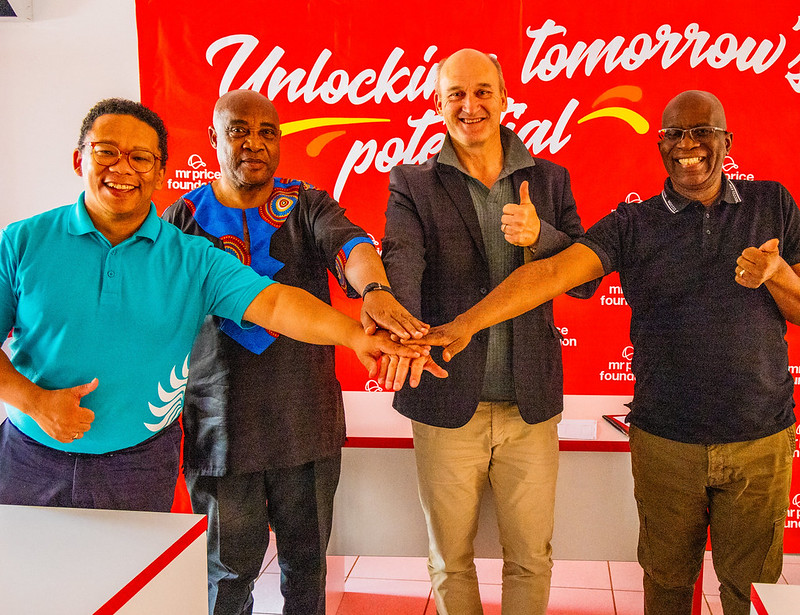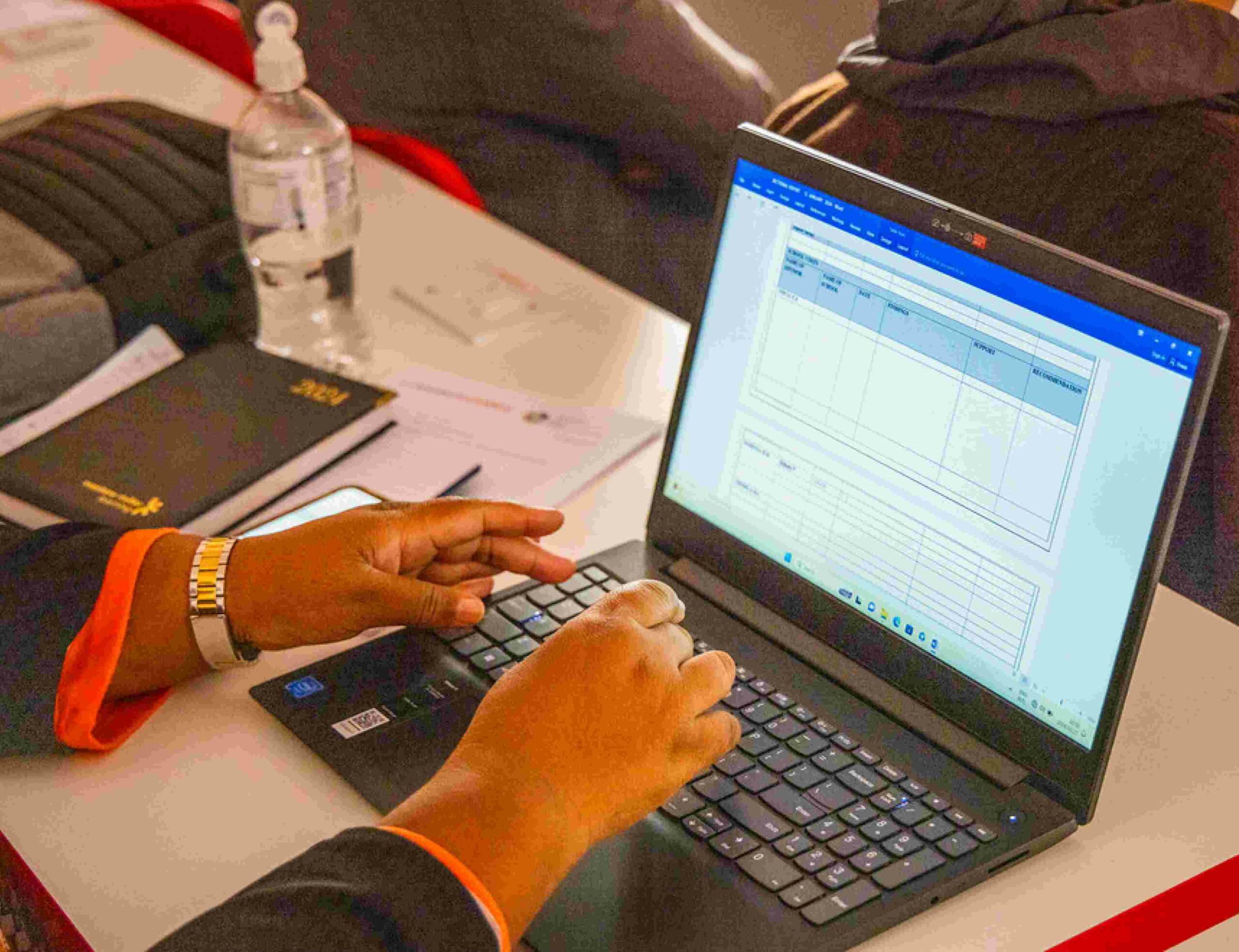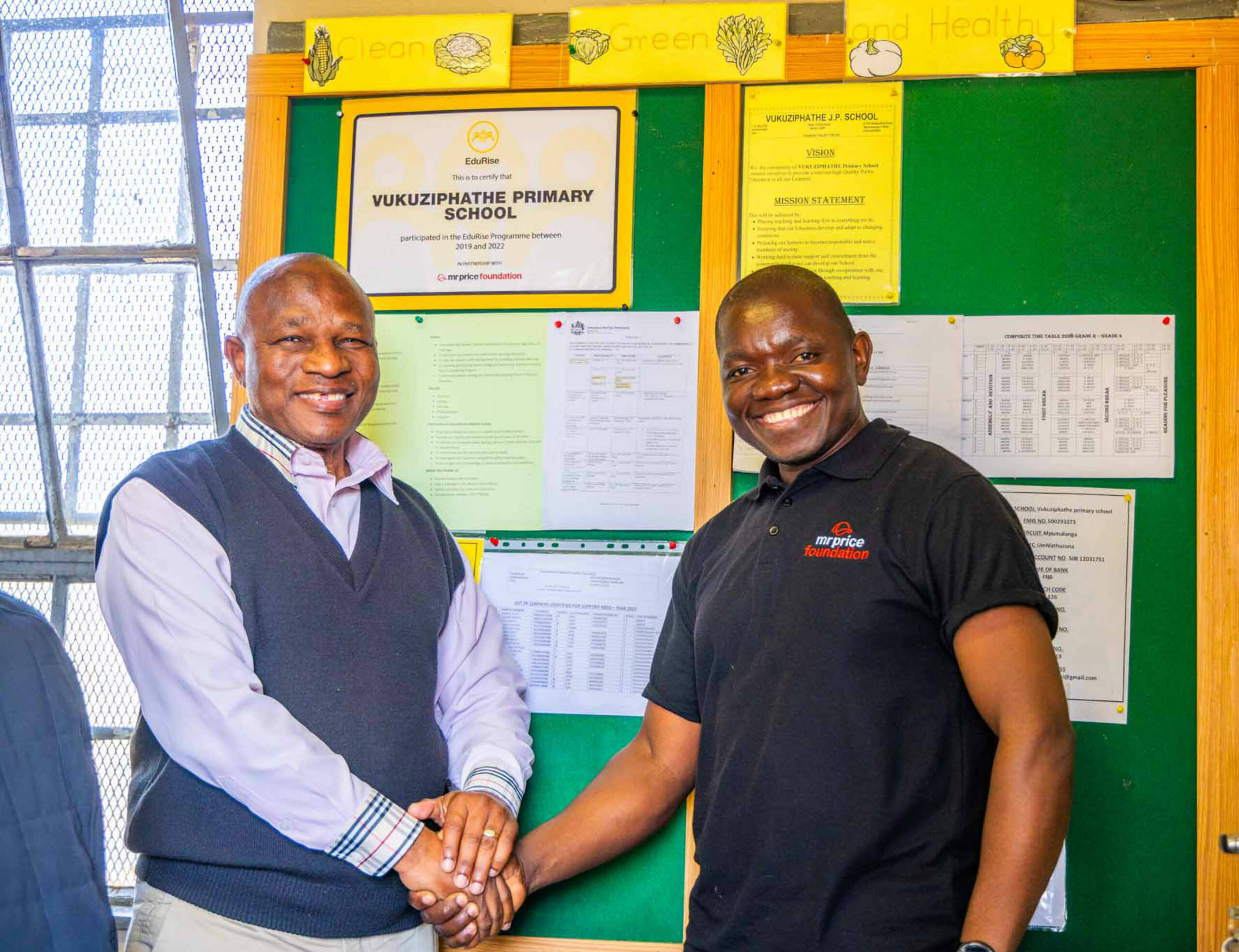The MRP Foundation’s Tech-Ed Programme is creating a global solution for technology in education.
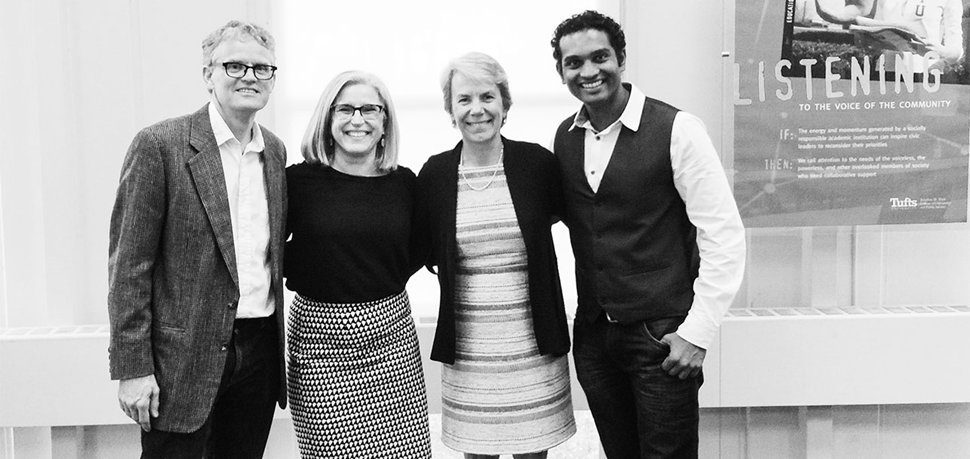
GREAT MINDS: Left to right – Tinsley Galyean, Exec Director of Curious Learning, Stephanie Gottwald, Asst Director of Center for Reading and Language Research Tufts University, Miriam Nelson, Associate Dean of Tisch College of Citizenship and Public Service Tufts University, and Creesen Naicker.
A direct response to the national challenge of unequal opportunity in education in South Africa, the MRP Foundation’s Tech-Ed Programme is a pioneering project that embraces technology as a tool to boost South African learners’ academic performance and support the education system.
Focused on the MRP Foundation’s RedCap Schools in KwaDukuza, KwaZulu-Natal, the programme launched as a pilot in 2014 and has already produced some outstanding results. Classes have swelled, learner engagement and marks have improved and leading international organisations in technology and education are looking to and taking example from the MRP Foundation’s Tech-Ed model.
Creesen Naicker, Tech-Ed’s Project Manager and Washington Mandela Fellow, recently travelled to the USA to engage with international partners to ensure that the MRP Foundation continues to develop innovative solutions to empower South African learners and enhance the learning environment.
The MRP Foundation caught up with Naicker who recently returned from the USA for a quick Q and A:
MRPF: What was the purpose of this trip and what were the highlights?
Creesen Naicker: “This trip was about networking, partnership prospecting and knowledge development; and it was a great success. I was able to test our technology in education project logic and implementation model with some of the foremost thinkers in the world. Excitingly, the feedback was overwhelmingly positive, and shows that what we are doing has some real potential to reimagine education in South Africa, if not in a broader context.”
MRPF: Which international partners were you able to connect within the USA and why?
CN: “I was hosted by Curious Learning and key points of call included: Tufts University and MIT; Games for Change (Conference at NYU); Educational App Developers; US Department of Education and the United Nations Office for Partnerships. All of these were opportunities where we continued to promote the work of MRP Foundation and receive insight regarding our project.”
MRPF: What were some key insights you learnt during this trip?
CN: “No one has the challenge completely solved for using technology in education, particularly for the developing world, but there is consensus that we are at a watershed moment where the convergence of factors can lead to a meaningful solution, especially if organisations like the MRP Foundation partner and work together on a global solution. Tinsley Galyean, executive director of Curious Learning, likes to say that this is an “all hands on deck problem” and that a concerted global effort is more possible now than ever before. I also learnt that we, as MRP Foundation, have an approach to our work that is as innovative and exciting as almost any other development organisation in the world. It was a great compliment to the many people who have made the MRP Foundation what it is today, and I am proud to be part of this team. There were also a host of practical learnings and insights regarding the deployment which will help us be even better going forward.”
MRPF: How will the new developments impact the MRP Foundation Tech-Ed programme on the ground?
CN: “We are working with some of the best minds in the world, helping us with solving the real-world implementation dilemmas we face, which makes the chances of our success in this audacious task just that much more likely. I managed to strike up relationships with some of the best education app developers who will offer access to their material in our deployments. Some of our feedback and practical suggestions are also being spread and applied as far away as Peru, I connected with a wonderful project attempting to do the same as us that is linked to UTEC (link to programme page) and funded by Eduardo Hochschild.”
*Annexure
RedCap Schools A holistic education programme in five schools in KwaDukuza focused on improving learner performance.
Tech-Ed A technology in education programme funded and facilitated by the MRP Foundation.
Curious Learning (Previously called the Global Literacy Project (GLP) A child-driven learning movement using tablet-based technology to tackle the widespread problem of illiteracy and poor education.
Massachusetts Institute of Technology (MIT) Media Lab A GLP implementation partner who helped design the GLP Project.
Tufts University Language Centre As one of the implementation partners of the GLP Tufts finds and develops the content for the colourful learning apps which the tablets are preloaded with.
Georgia State University Psychology Department One of the implementation partners of the GLP.
Breteau Foundation Part of the literacy component of TechEd the Breteau Foundation aims to bring digital learning platforms to underprivileged school children.
Khan Academy Khan Academy offers practice exercises, instructional videos, and a personalized learning dashboard that empower learners to study at their own pace in and outside of the classroom. Khan Academy is used as part of the numeracy component of TechEd.
Numeric Numeric is using Khan Academy to create exciting and high impact learning environments around South Africa.
KA Lite An offline version of Khan Academy. It is a lightweight solution providing high-quality education by bringing the power of online learning to the offline world. KA Lite is part of the numeracy component of TechEd.
Shepid IT and Technical Support
AirBand A focused wireless broadband company that provides the bandwidth for the TechEd project.
Bodill Education Independent Maths testing and curriculum consultants.
Next Level Outcomes The independent research organisation responsible for facilitating the testing and evaluation study on the TechEd Project.

